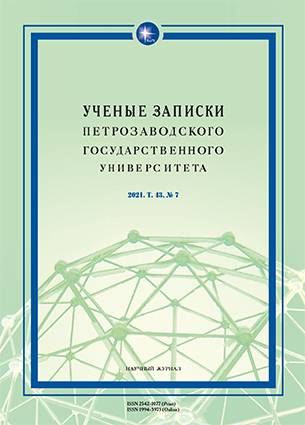ИССЛЕДОВАНИЕ ГИПОТАКСИСА РУССКОГО ЯЗЫКА В СВЕТЕ ИДЕЙ ПРЕДСТАВИТЕЛЕЙ ФОРТУНАТОВСКОЙ ШКОЛЫ
(на примере текстов А. Н. Островского)
STUDY OF HYPOTAXIS IN THE RUSSIAN LANGUAGE IN THE LIGHT OF THE IDEAS OF THE FORTUNATOV’S SCHOOL REPRESENTATIVES (illustrated by Alexander Ostrovsky’s texts)
Author(s): Nina Semenovna Gantsovskaya, Qin LidongSubject(s): Eastern Slavic Languages
Published by: Петрозаводский государственный университет
Keywords: hypotaxis; conditional conjunctions; Alexander Ostrovsky; Fortunatov’s school; Vasilenko; Shapiro; Bulakhovsky
Summary/Abstract: The Russian literary language, the ways of displaying the communicative qualities of complex sentences depending on the degree of grammatical abstraction, the main features of their formal and semantic structure, the nature and features of the functioning of their construction features in a certain period of history – these are the current issues of the study of the Russian language, which still are of a debatable nature and form the theoretical basis for this work.These problems turn us to the ideas of the Fortunatov’s school representatives who laid out the path for the priority research of the structural (grammatical) properties of hierarchically arranged syntactic units. The article deals with the structural and semantic features of the conjunctions of complex conditional sentences in the plays written by one of the creators of the modern Russian literary language – a classic of Russian literature Alexander Ostrovsky. The language of Ostrovsky’s dramas played an important role in the democratization of the Russian literary language and preserved many features of Russian folk colloquial speech, including dialect ones. In this regard, the ideas of the authors of the article are based on the works of the classics who supported Fortunatov’s intellectual tradition in the Russian linguistics,in particular, Abram Shapiro and Leonid Bulakhovsky. As a result of the study, the conclusion was made about the absolute predominance of the universal monosemantic conjunction если (if) in the literary and colloquial constructions of the Russian language in the mid-XIX century, as well as about a significant role of syncretic conjunctions of a colloquial nature, such as ежели (if), как (when), когда (when), коли (if), in comparison with the modern state of the Russian literary language.
Journal: Ученые записки Петрозаводского государственного университета
- Issue Year: 43/2021
- Issue No: 7
- Page Range: 19-25
- Page Count: 7
- Language: Russian

